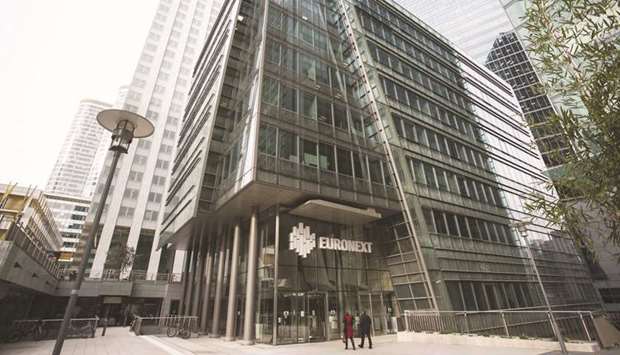Stock markets rose yesterday after US President Donald Trump struck an upbeat note on trade talks with China, while the pound ended a volatile Brexit-fuelled week on a strong note.
The main European markets all closed higher, and US stocks were also up in the early New York afternoon with “reports of progress on the US-China trade front seeming to buoy sentiment”, said analysts at Charles Schwab brokerage.
In London, the FTSE 100 closed up 0.6% to 7,228.28 points; Frankfurt — DAX 30 ended up 0.9% to 11,685.69 points and Paris — CAC 40 closed up 1.0% to 5,405.32 points yesterday.
Tokyo’s main stocks index ended the day higher, too, despite the Bank of Japan issuing a more downbeat assessment of the world’s third biggest economy, as a broader global slowdown impacts exports and production.
“Brexit volatility appears to have calmed,” noted Joshua Mahony, senior market analyst at IG trading group. “Meanwhile, US-China trade talk hopes have improved.” While concerns about the global growth outlook remain, investor confidence has been supported by ongoing optimism that the United States and China will eventually hammer out a deal to end their long-running trade row.
Trump on Thursday provided fresh cheer by telling reporters “we are doing very well with China talks”, adding that “we are getting what we have to get”.
He also said “one way or the other, we’re going to know over the next three to four weeks”.
Yesterday, China approved a foreign investment law that will abolish the forced transfer of technology from foreign firms to local joint-venture partners, addressing a key point of anger in the White House.
“There’s still no guarantee that these (US-China talks) can be concluded, but at least we’ve seen an indication that the wait will only be another three to four weeks,” said James Hughes, chief market analyst at Axitrader.
“This has the potential to fuel risk appetite in the interim period.”
On currency markets the pound climbed versus the dollar and euro after a week that saw wild fluctuations for the UK unit triggered by Brexit twists and turns. British Prime Minister Theresa May’s EU withdrawal agreement was this week rejected by parliament for a second time.
But the divorce deal could yet return from the dead should hardcore Brexiteers fear a delay could produce a softer Brexit that what is currently on offer.
“There’s still a significant amount of tail risk in being overly exposed to sterling” because of Brexit uncertainty, said Michael Hewson, chief market analyst at CMC Markets UK.
“Ultimately talk is cheap, and markets require certainty, something that still remains in short supply.”

Visitors arrive at the Paris Stock Exchange, operated by Euronext, in France (file). The CAC 40 closed up 1.0% to 5,405.32 points yesterday.
